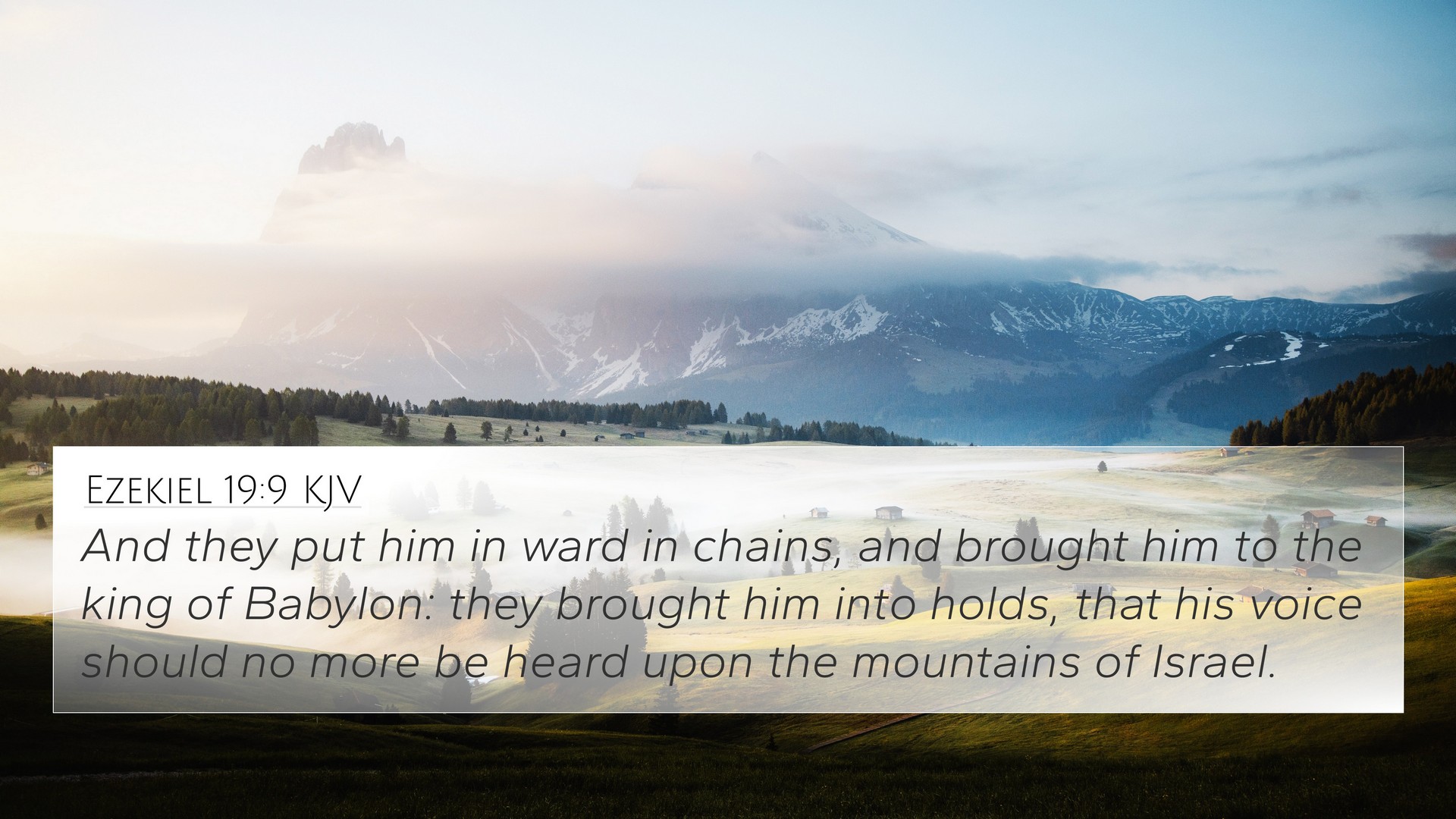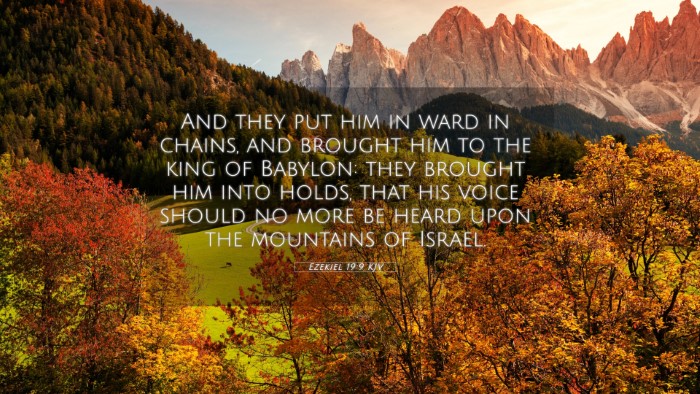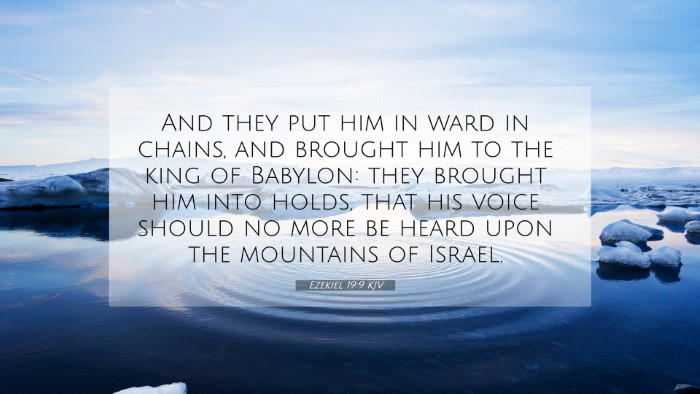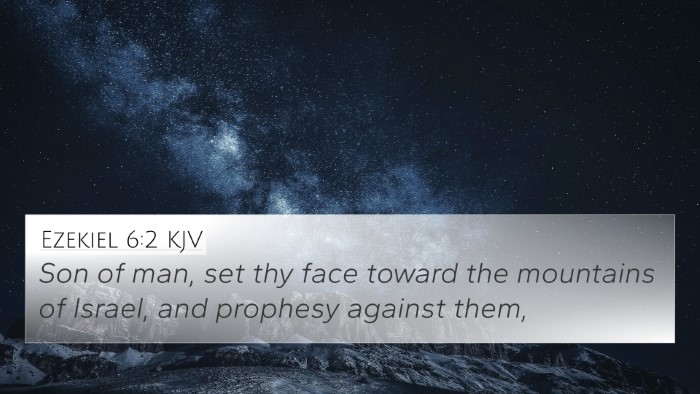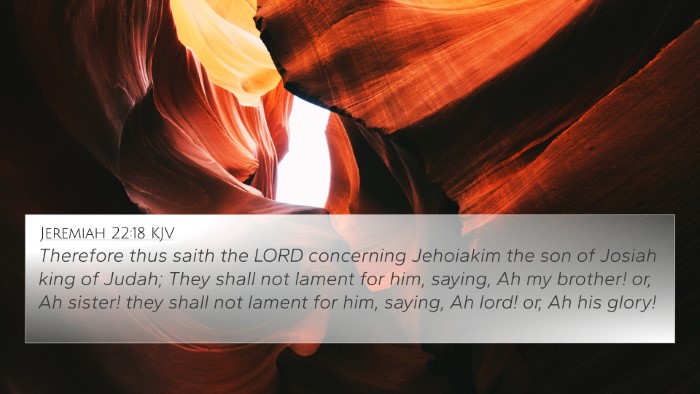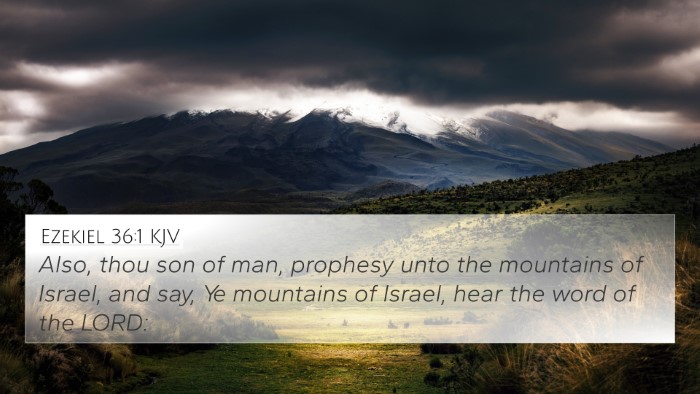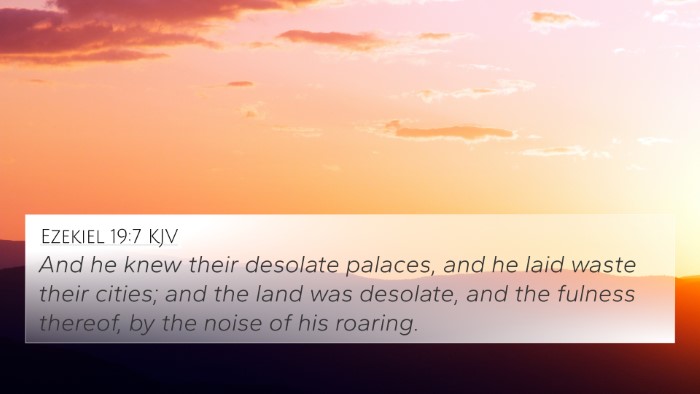Ezekiel 19:9 - Summary and Interpretation
The verse Ezekiel 19:9 reads:
"And they put him in a cage with chains, and brought him to the king of Babylon; they brought him into holds, that his voice should no more be heard upon the mountains of Israel."
This passage is rich with meaning and symbolism, primarily focusing on the themes of captivity and loss.
Via public domain commentaries, we can derive a deeper understanding of its implications.
Context and Analysis
Ezekiel uses this imagery to describe the fate of Israel and its leaders.
The "cage" and "chains" symbolize the oppression and captivity that would befall the people of Israel as a consequence of their disobedience to God.
Commentary Insights
- Matthew Henry: He emphasizes the sorrow of captivity, reflecting how the people of Israel were taken into Babylonian exile.
The imagery of being caged illustrates the loss of freedom and the despair of God’s chosen people.
- Albert Barnes: Barnes discusses the implications of the leaders' failure, illustrating the “holds” as places of confinement not only for their bodies but also for their voices, symbolizing how the prophetic voice was silenced.
- Adam Clarke: Clarke highlights the fate of the symbolized lion and what it means for Jerusalem, stressing that though the city was exalted, its pride led to downfall. The reference to the "mountains of Israel" indicates a deep connection to the land and spiritual authority lost through captivity.
Thematic Connections
This passage serves as a microcosm of the larger narrative of Israel's history.
The themes of sin, judgment, and eventual hope are threaded throughout the scriptures.
To understand these parallels, let's explore crucial cross-references that illuminate similar themes.
Cross-References
-
Jeremiah 52:31-34: This passage speaks to the captivity of Jehoiachin, echoing Ezekiel's themes of loss and restoration.
-
Lamentations 1:1-3: The sorrow of Jerusalem being desolate connects to the imagery in Ezekiel, reinforcing the narrative of suffering due to divine judgment.
-
Isaiah 39:6-7: Similar to Ezekiel’s lament, Isaiah speaks of the consequences of pride and the exile of children, showing the inter-Biblical dialogue on captivity.
-
Ezekiel 17:12-15: A related metaphor where a young eagle represents loss and bondage, paralleling the themes in Ezekiel 19:9.
-
Psalm 137:1: Reflects the emotional state of a nation in captivity, echoing the sorrow implied in Ezekiel's prophecy.
-
2 Kings 25:7: This passage details the fall of Jerusalem, providing historical context and verification to Ezekiel’s prophecies.
-
Micah 1:9: Speaks to the wounds of the nation and the inability to heal them, similar to the despair depicted in Ezekiel.
-
Matthew 23:37: Jesus expresses sorrow over Jerusalem, drawing a direct line to the consequences of rebellion against God.
-
Revelation 18:2: The imagery of a city fallen with chains may connect to future prophetic insights about Jerusalem and its fate.
-
Ezekiel 14:23: Conveys hope for restoration after judgment, illustrating God's ultimate plan for His people despite their failures.
Conclusion
Ezekiel 19:9 serves as a poignant reminder of the consequences of spiritual disobedience and the longing for redemption. The insights gathered from various public domain commentaries help grasp its depth while the identified cross-references allow for a comparative Bible verse analysis that links themes of suffering, captivity, and eventual hope throughout the scriptures.
Further Studies and Applications
For those exploring the Bible, utilizing tools for Bible cross-referencing can enhance understanding.
This includes employing a Bible concordance and a cross-reference Bible study guide to identify intricate links between scriptures.
Engaging in thematic Bible verse connections will deepen one’s comprehension of inter-Biblical dialogue and the overarching narrative of faith, loss, and restoration.
Recognizing Bible verses that relate to each other through explicit themes can effectively illustrate a cohesive understanding of God's message.
The patterns of God’s justice and grace throughout the scriptures reveal profound truths accessible via diligent study and reflection.
